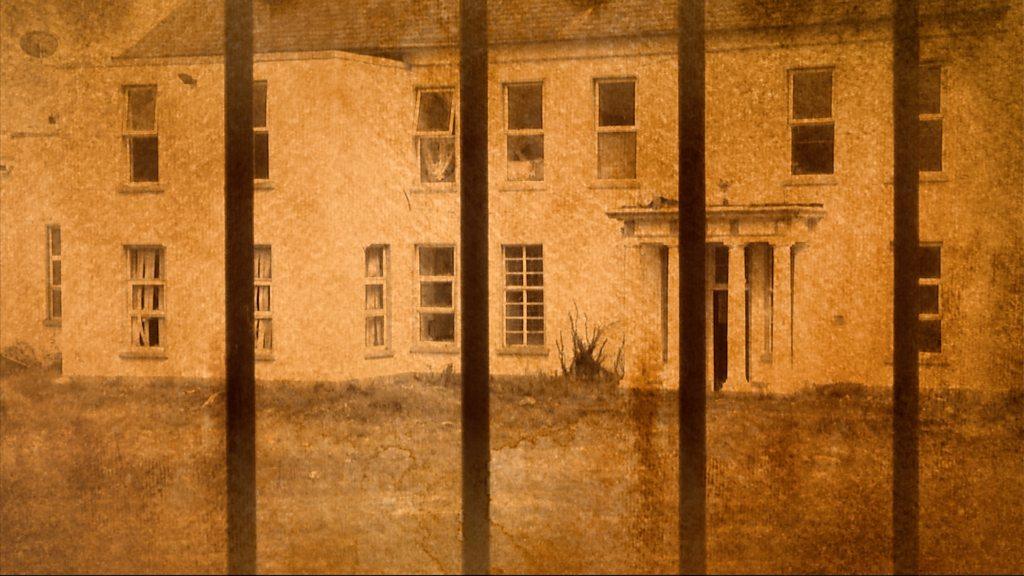Mother and baby homes: Eamon Martin supports public inquiry
- Published
Archbishop of Armagh, Eamon Martin, was speaking on BBC NI's The View programme
The leader of the Catholic Church in Ireland has said he would support a public inquiry into what happened at mother and baby homes across NI.
A Department of Health report on the homes was published on Tuesday.
Archbishop Eamon Martin was speaking on BBC NI's The View programme on Thursday night.
He also agreed that victims of mother and baby homes should be entitled to compensation.
Archbishop Martin appealed to anyone in Northern Ireland who has information on what happened to women and children at the homes to "lift the lid on this stark reality and let the glaring light of truth shine in".
The research into the homes was commissioned by the Department of Health and carried out by Queen's University and Ulster University.
It examined eight mother and baby homes, a number of former workhouses, four Magdalene Laundries and sought personal testimony from women and children with "lived experience" of the institutions.
Mother-and-baby institutions housed women and girls who became pregnant outside marriage and the laundries were Catholic-run workhouses that operated across the island of Ireland.
It examined a number of issues including whether a public inquiry should be held.
'I'm deeply sorry'
The findings of the research included details of how some were the victims of sexual crime, including rape and incest.
Read more on the report's contents here.
Speaking on The View, Archbishop Martin said any inquiry "will require a very firm legislative and statutory framework... in order to help these people understand their story".
First Minister Arlene Foster has said that there would be a "new independent investigation" .
Meanwhile Judith Gillespie, who chaired the executive's independent inter-departmental working group on the issue, said a public inquiry was "not off the table" and insisted survivors would have "agency in the process".

Full inquiry would be 'tremendously helpful'
A man who was placed in a mother-and-baby home in north Belfast in 1945 has said Archbishop Eamon Martin's apology "helps so much".
Peter Quigley was taken to the home shortly after his birth in Bethany Home orphanage in Dublin.
When he was 42, he managed to trace his birth mother and met up with her on Mother's Day in 1987.
"It was quite an emotional experience, and such a joy to put all those pieces together," Mr Quigley told BBC Radio Ulster.
"I sent her flowers in advance for Mother's Day, my stepdad met me in the train station at Bognor Regis and we walked up the Linden Road together and I met my mum for the very first time.
"There was no recrimination, there was no regret, it wasn't perfect but it was just normal, healthy and good."
Mr Quigley said a full inquiry would be "tremendously helpful" because many people, like himself, need to get information and "want to fill in the blanks".
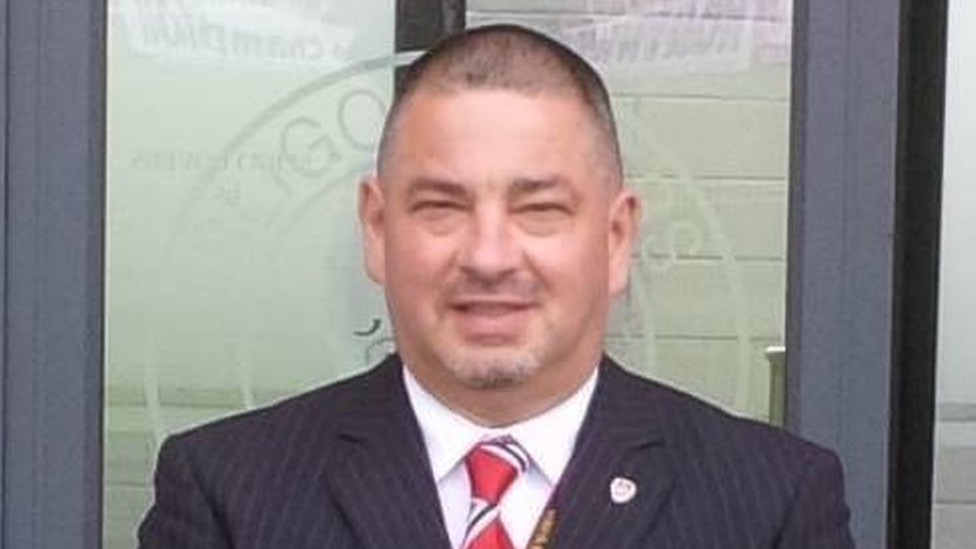
Billy Scampton was born in Marianvale in Newry, County Down in the 1960s and was then adopted from the Nazareth House in Donegal in 1962.
A Londonderry man who was also born in a mother-and-baby home echoed that call and said there needed to be an investigation into how babies were transported across the border without "questions being asked".
Billy Scampton was born in Marianvale in Newry, County Down, in the 1960s and was then adopted from the Nazareth House in Donegal in 1962.
Speaking to BBC Radio Foyle, Mr Scampton said in the last couple of years he has tried to track down his biological family, but has never met his birth mother.
"What still gets me to this day, the border between Northern Ireland and the Republic of Ireland was very much a fixed entity in the 1960s, even before that, when we were born.
"To move even as much as a cow or a chicken you needed the proper paperwork, yet there was the likes of us being moved freely back and forward on what was an international frontier by individuals.
"There were more checks-and-balances put in place to move livestock across than there were to move babies."

First Minister Arlene Foster told Good Morning Ulster that Peter Quigley's testimony of being placed in a mother-and-baby home was "moving".
She said it was important that people like him were involved in the design and structure of an inquiry.
"It will need statutory powers and a legislative framework to ensure we have access to everything we need," she said.
However, she added that the form and function should be "decided by the victims and facilitated and chaired by Victims Commissioner Judith Thompson".
"It is important that victims must have ownership of everything going forward given that they were not in that position either as young women or the children of those women," she added.
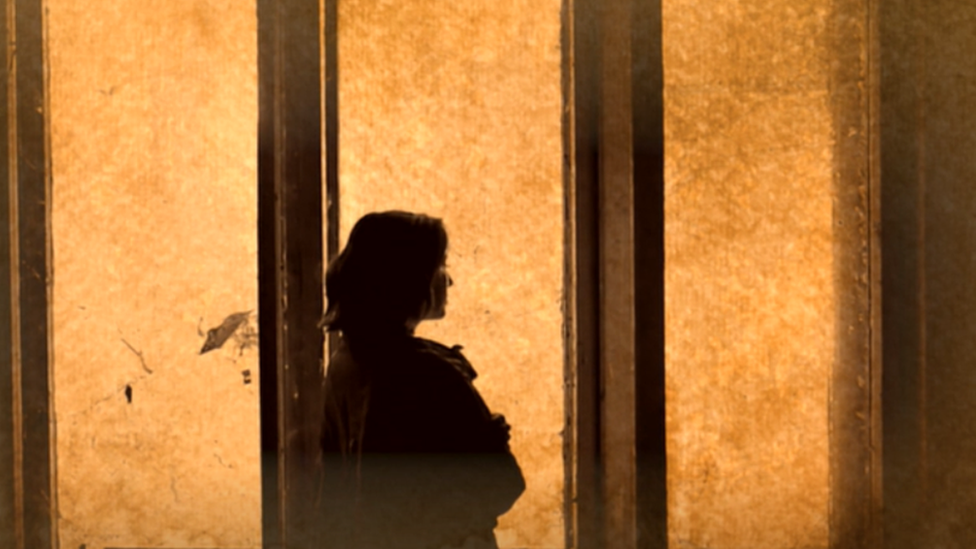
Thousands of women and girls entered the institutions in Northern Ireland over a 68-year period
Following publication of the research earlier this week, Archbishop Martin apologised to victims on behalf of the church and asked for their forgiveness.
He reiterated his apology on The View on Thursday night, saying: "I'm deeply sorry for the way you were treated. As a church leader in Ireland today, it is I who feels the shame that was placed on your shoulders."
He said the Catholic Church "lost sight of the merciful Christ" when they mistreated mothers and babies at the homes.
"The gospel I follow is about the dignity of every person, a gospel that calls me to reach out to the vulnerable and the marginalised."
He added: "We clearly had obscured the light of the gospel underneath a fixation with a judgemental, authoritarian approach to our faith and it is extremely sad that at the brunt of that were often women and vulnerable, those who society was perhaps also rejecting and who perhaps would have wanted to find in their church some refuge, some solace in their church and didn't find it."
Archbishop Martin also said the Catholic Church "cannot shirk its responsibility for this, which is why I very humbly and sincerely offer that apology".
Asked if compensation should be paid to victims, Bishop Martin said "definitely".
He added: "Victims will require practical support. What I have found from talking survivors, often they aren't seeking money but answers denied to them in decades previously".
"We have to find maybe a multitude of ways or memorialisation, recognition.
"If that means financial reparation and it is possible to do that in a way which is just and proportionate and takes account of the findings, I think all of us have to step up and play our part."
The publication of the report in Northern Ireland comes after a similar investigation into mother-and-baby homes and laundries in the Republic of Ireland, which prompted an apology from Taoiseach (Irish prime minister) Mícheál Martin.
Related topics
- Published26 January 2021
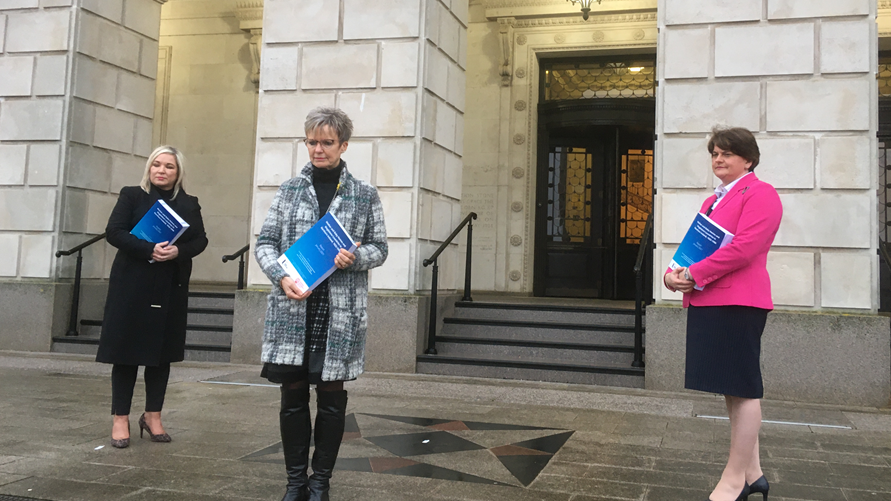
- Published26 January 2021
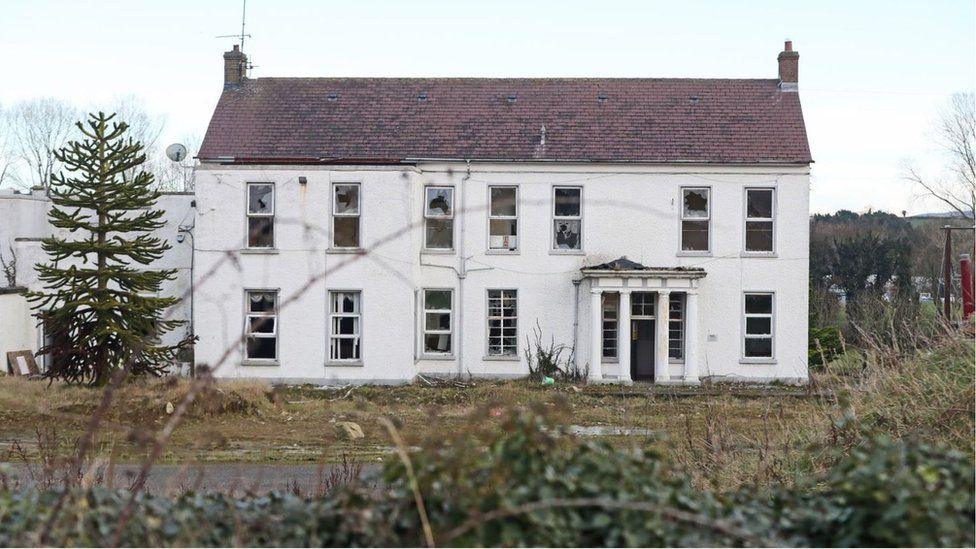
- Published14 September 2020
